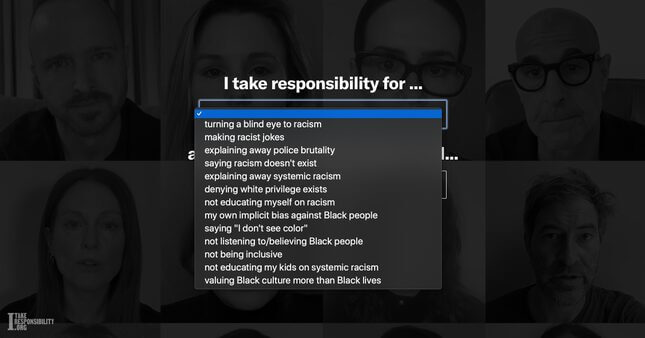The Celebrities Are Apologizing for Racism (and We're Not Convinced)
Latest
That’s right folks, the celebs are at it again. And by ‘it’, I mean making cringe-inducing comments about racism—this time, in video form! The video, which went viral on Twitter earlier today, is in black and white (how else would you know this is A Serious Matter?), and consists of a series of clips of different famous white people talking about taking responsibility for all of the times they’ve enabled or engaged inn racism in the past. The short video ends with clips of these celebrities saying “I stand against hate,” before directing viewers to the website itakeresponsibility.org.
… That’s nice I guess?
The idea behind the “I take responsibility” campaign seems to be that this is a way for these famous whites to commit themselves to the fight for Black lives and to hold themselves (and I guess other random white people on the internet?) responsible for speaking up about racism. Sounds generally harmless, right?
-

-

-

-

-

-

-

-

-

-

-

-

-

-

-

-

-

-

-

-

-

-

-

-

-

-

-

-

-

-

-

-

-

-

-

-

-

-

-

-








































